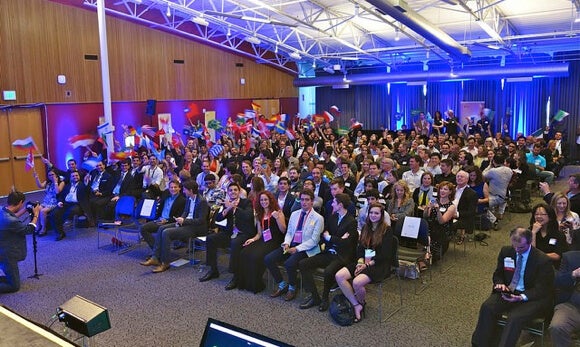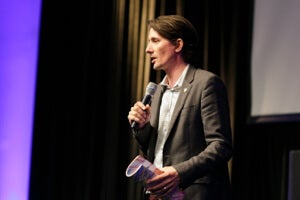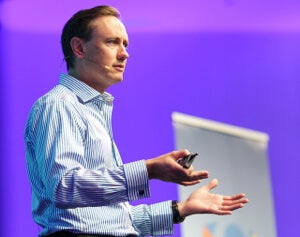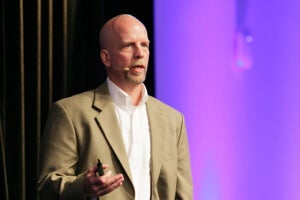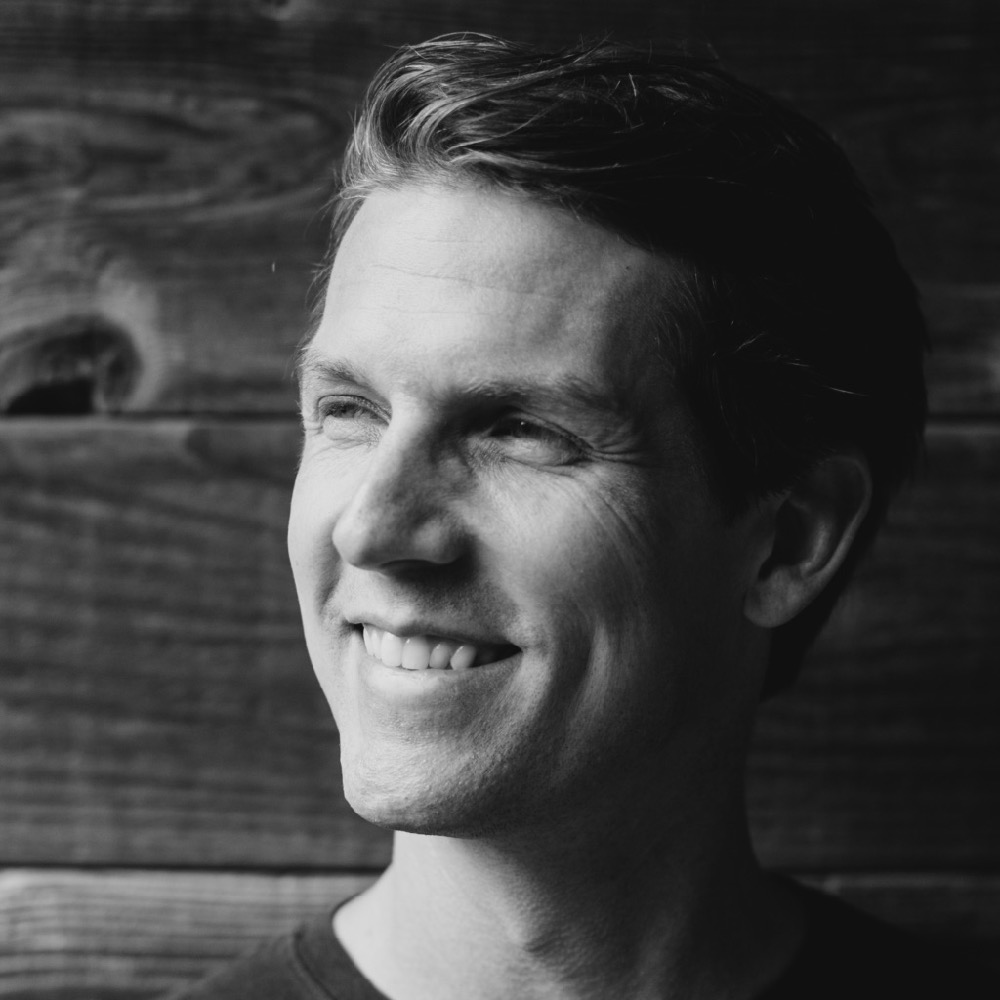‘We’re Living in Science Fiction Right Now’ Diamandis Tells GSP 2014

Share
“It’s that time again.” These were the words on more than one pair of lips at Singularity University’s 2014 Graduate Studies Program (GSP) opening ceremony.
The 10-week summer program was Singularity University’s first offering six years ago, and it remains at the heart of Singularity University’s mission today—to use technology to positively impact a billion people in the next ten years.
Rob Nail, Singularity University associate founder and CEO, took the stage and held up the firm’s first impact report, a document outlining SU’s progress toward that audacious goal. We’ve come a long way, he said, and we’ve got a long way to go. To get there, we’re counting on our community to lead and support the effort.
Dr. Peter Diamandis, co-founder and chairman of Singularity University and chairman and CEO of the X PRIZE Foundation, said you can do anything with three things: Technology, capital, and people. But the first two are useless without the third.
The incoming summer class includes 80 talented, accomplished, and driven GSP participants and 14 likewise admirable high school students—part of the inaugural 2014 Exponential Youth Camp—from 40 countries.
We’re asking you to impact a billion people in ten years, Diamandis told them. That’s an enormous challenge. The world’s resources seem finite and its problems insurmountable—until they’re recombined and transformed by the imagination, determination, and vision of an Elon Musk or Steve Jobs.
“People who are literally able to make the impossible possible,” he added.

Dr. Peter Diamandis, co-founder and chairman of Singularity University and chairman and CEO of the X PRIZE Foundation.
Singularity University first arms participants with an awareness of the world’s biggest challenges, he said, then shows them the world’s "biggest levers," has them pick a target, seed a business—and go to town. Sky’s the limit in a world where small groups of driven individuals can make huge impacts.
Diamandis highlighted the Google Lunar X PRIZE, a competition between private firms to land on the Moon by 2016—something only three governments, at huge cost, have so far achieved. Or the fact Elon Musk, founder of SpaceX, can say with a straight face he wants to send people to Mars for just $500,000.
“We’re living in science fiction right now,” Diamandis said.
After documenting the moment onstage with his camera (see above), Steve Jurvetson of venture capital firm Draper Fisher Jurvetson followed Diamandis with a whirlwind tour of a modern economy where “software and IT are innervating just about every industry.”
The future belongs to the entrepreneurs, he said. To you folks.
Not so long ago, it took significant resources to enter industries like robotics, artificial intelligence, manufacturing, synthetic biology, or space. No longer. Computing power and advanced software increasingly know no boundaries.
Jurvetson said internet access and urbanization are already allowing humans to trade ideas on a staggering scale. As more people move to cities and three or four billion new internet users come online, expect an innovation explosion.
Be Part of the Future
Sign up to receive top stories about groundbreaking technologies and visionary thinkers from SingularityHub.


“It’ll be like perpetual future shock.”
His advice? Look at the exponential curve and plot a course five or ten years down the road. Look to industries that haven’t been disrupted for years, maybe even decades. And don’t be afraid to cross-pollinate, to branch out beyond specialties.
He likewise challenged those present to “de-constrain themselves” and collaborate with people from different backgrounds, explore new industries and technologies. But above all he emphasized, “This is your shot at finding your passion.” Whatever that may be, he said, passion will drive you to make the biggest impact.
But the path between here and there won’t be easy. The evening’s final speaker and GSP managing director, Ross Shott, likened the road to Joseph Campbell’s hero’s journey. After years studying the world’s myths, Campbell said that, although they differ on specifics, the big themes are consistent.
Campbell’s archetypal hero confronts a problem and is compelled to find a solution. He or she embarks on a quest into a strange land where they must undergo an ordeal and slay the dragon to receive the tools and knowledge necessary to achieve their quest.
You’ve embarked on this journey because you’ve been called to tackle some big problem in your community, Shott told participants. Singularity University is the strange land. The summer will be intense. “Here, you’re going to face your ordeal.” But stick with it. Don’t give up. There's room for lots of heroes. Find your elixir and take it home.
I was reminded of a quote by Machiavelli, “It ought to be remembered that there is nothing more difficult to take in hand, more perilous to conduct, or more uncertain in its success, than to take the lead in the introduction of a new order of things."
Being in the vanguard facing doubt and entrenched interests took as much courage and fortitude five hundred years ago as it does today.
But Machiavelli goes on to say, “Hence, it comes that all armed prophets have been victorious, and all unarmed prophets have been destroyed.” He likely would have marveled at how a few determined individuals with little or no fame and power can now win the world not by force, but on the strength of their ideas and the ease of those ideas’ distribution.
Go here to learn more about the Graduate Studies Program and Singularity University’s upcoming executive programs and conferences.
Image Credit: Steve Jurvetson; Morgan Bellinger
Jason is editorial director at SingularityHub. He researched and wrote about finance and economics before moving on to science and technology. He's curious about pretty much everything, but especially loves learning about and sharing big ideas and advances in artificial intelligence, computing, robotics, biotech, neuroscience, and space.
Related Articles
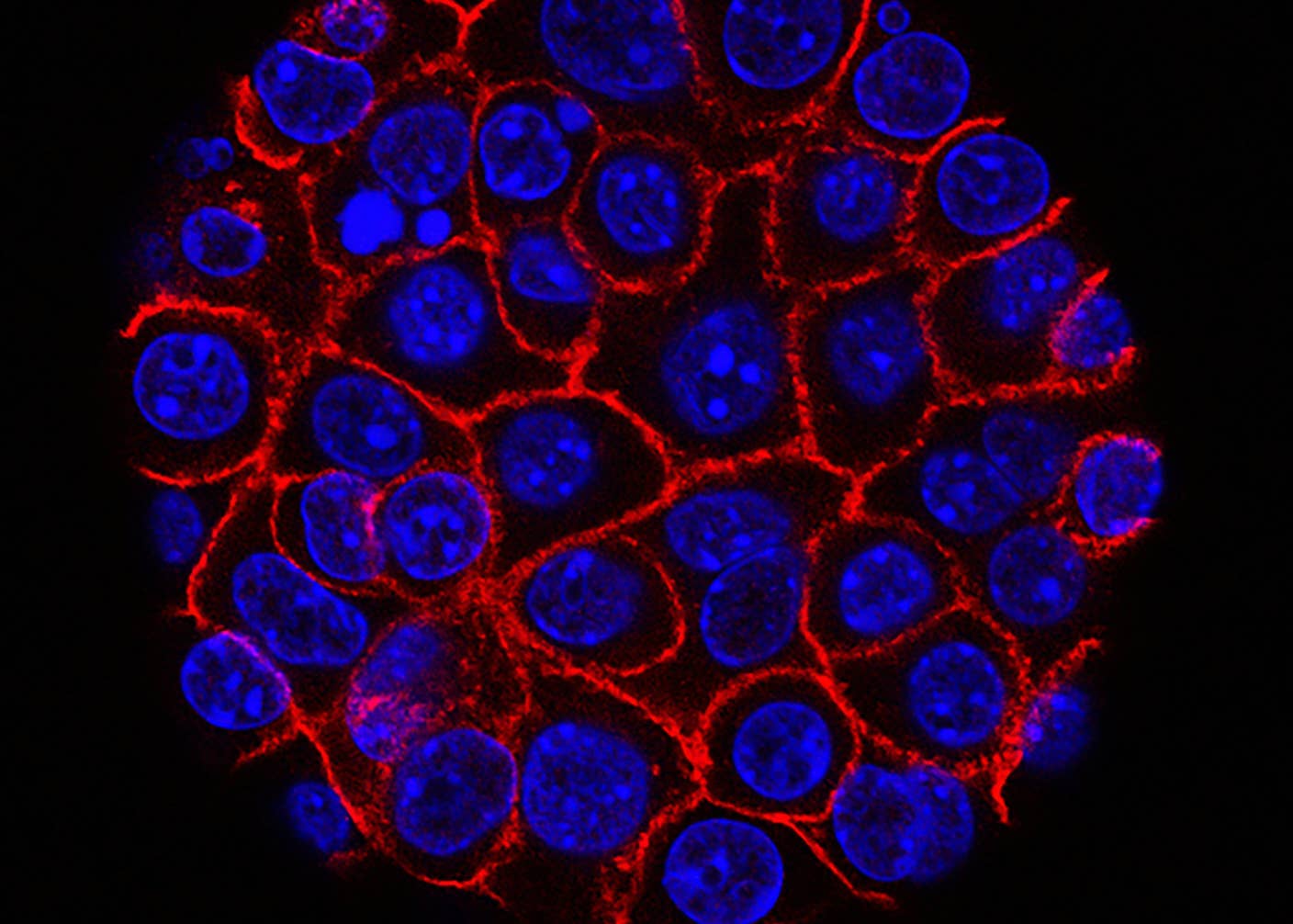
These Supercharged Immune Cells Completely Eliminated Solid Tumors in Mice
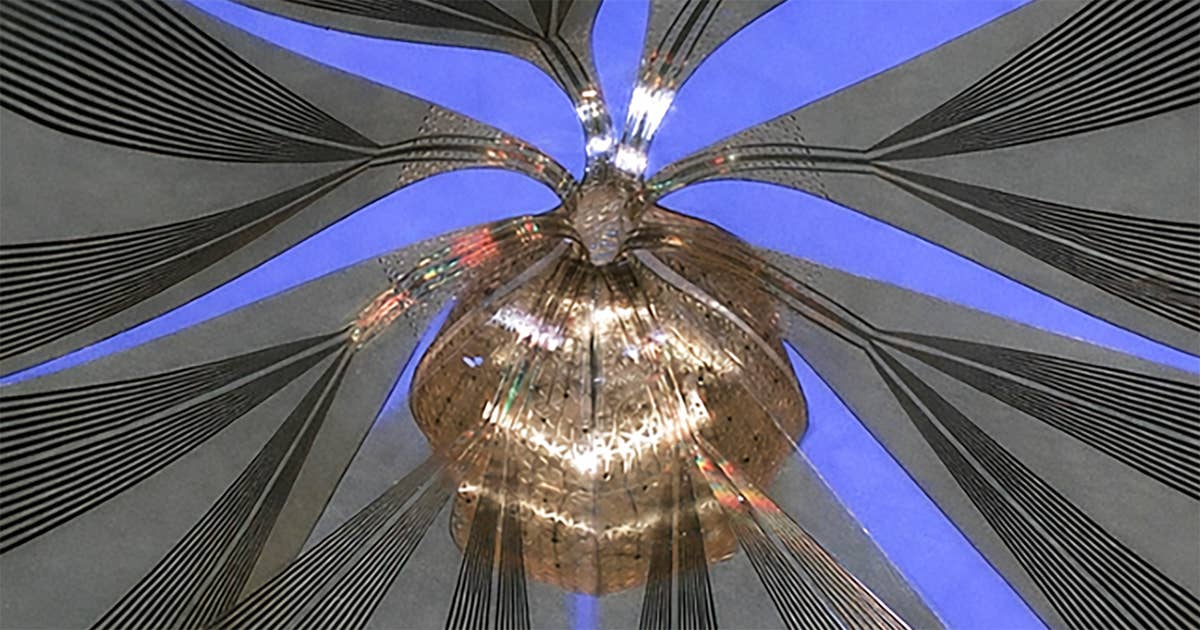
New Device Detects Brain Waves in Mini Brains Mimicking Early Human Development

This Week’s Awesome Tech Stories From Around the Web (Through February 28)
What we’re reading
